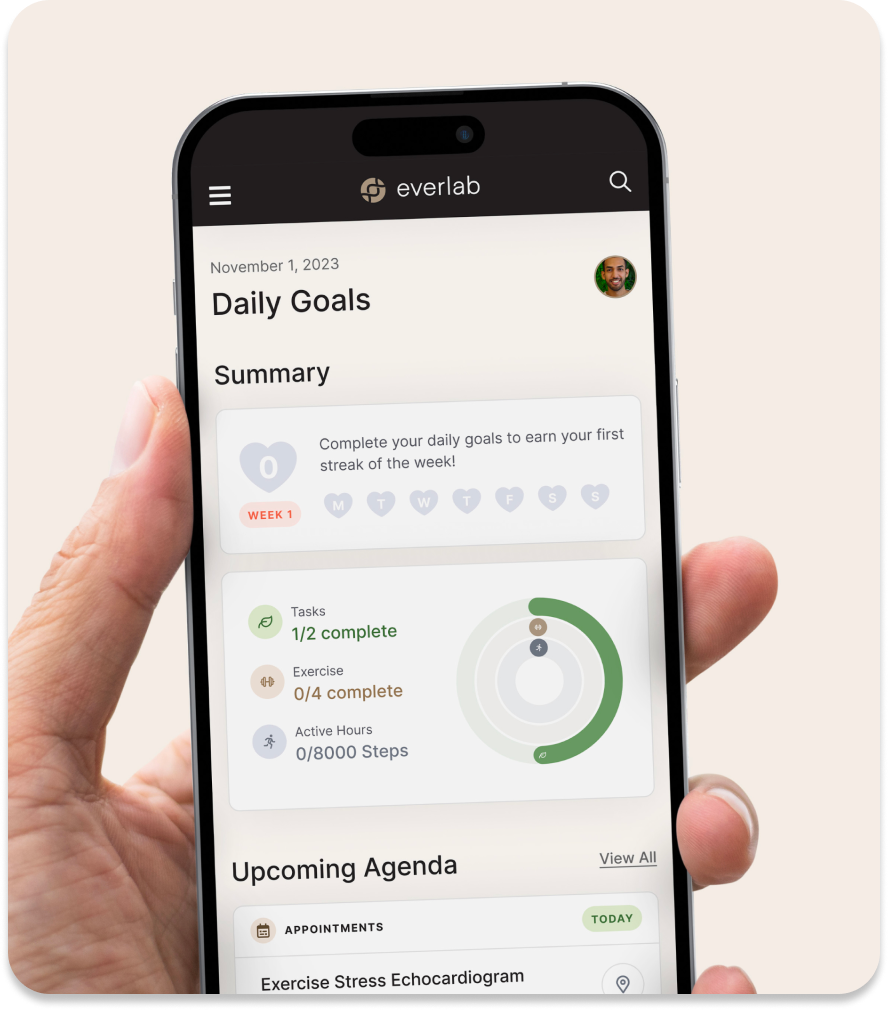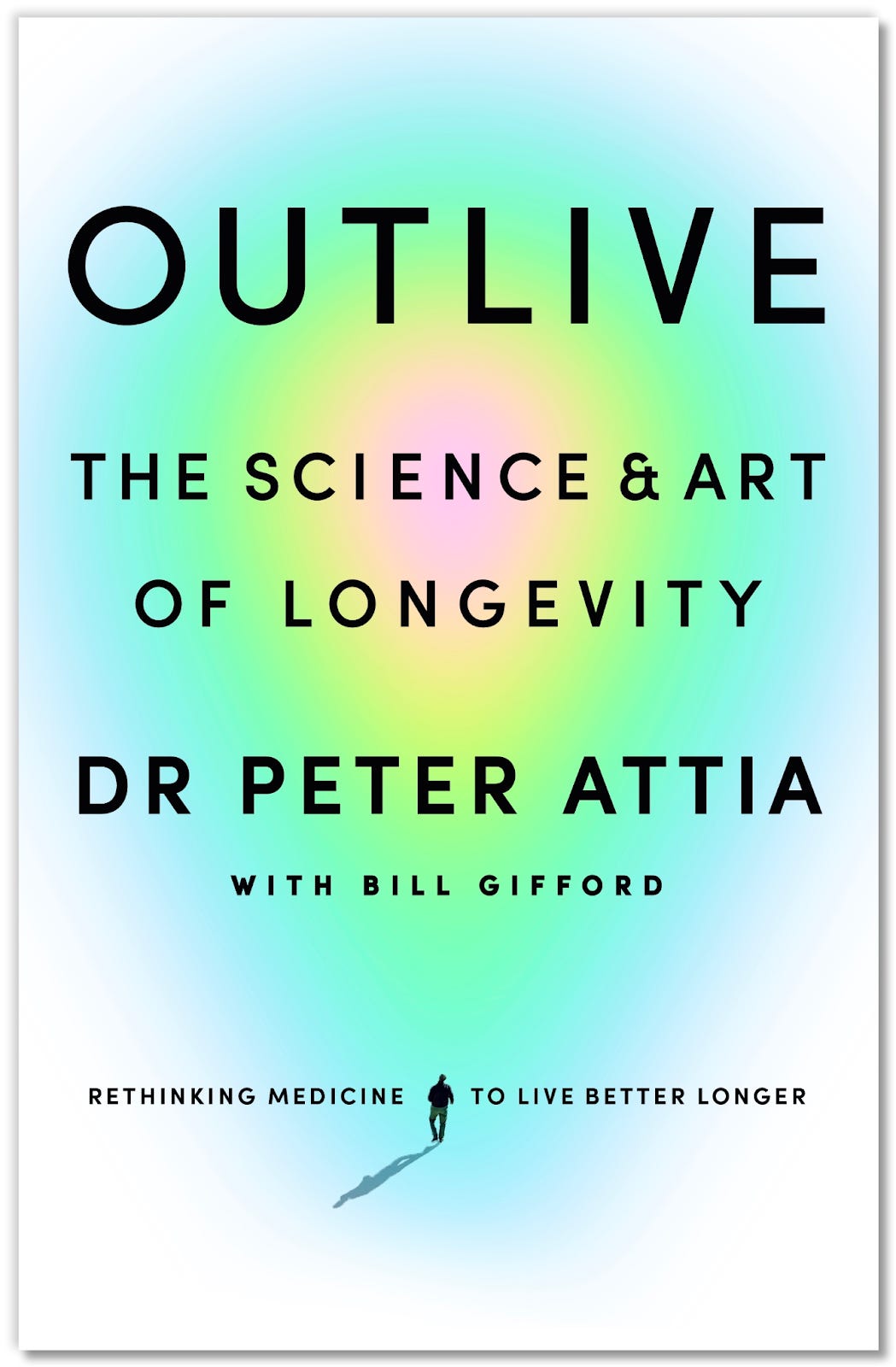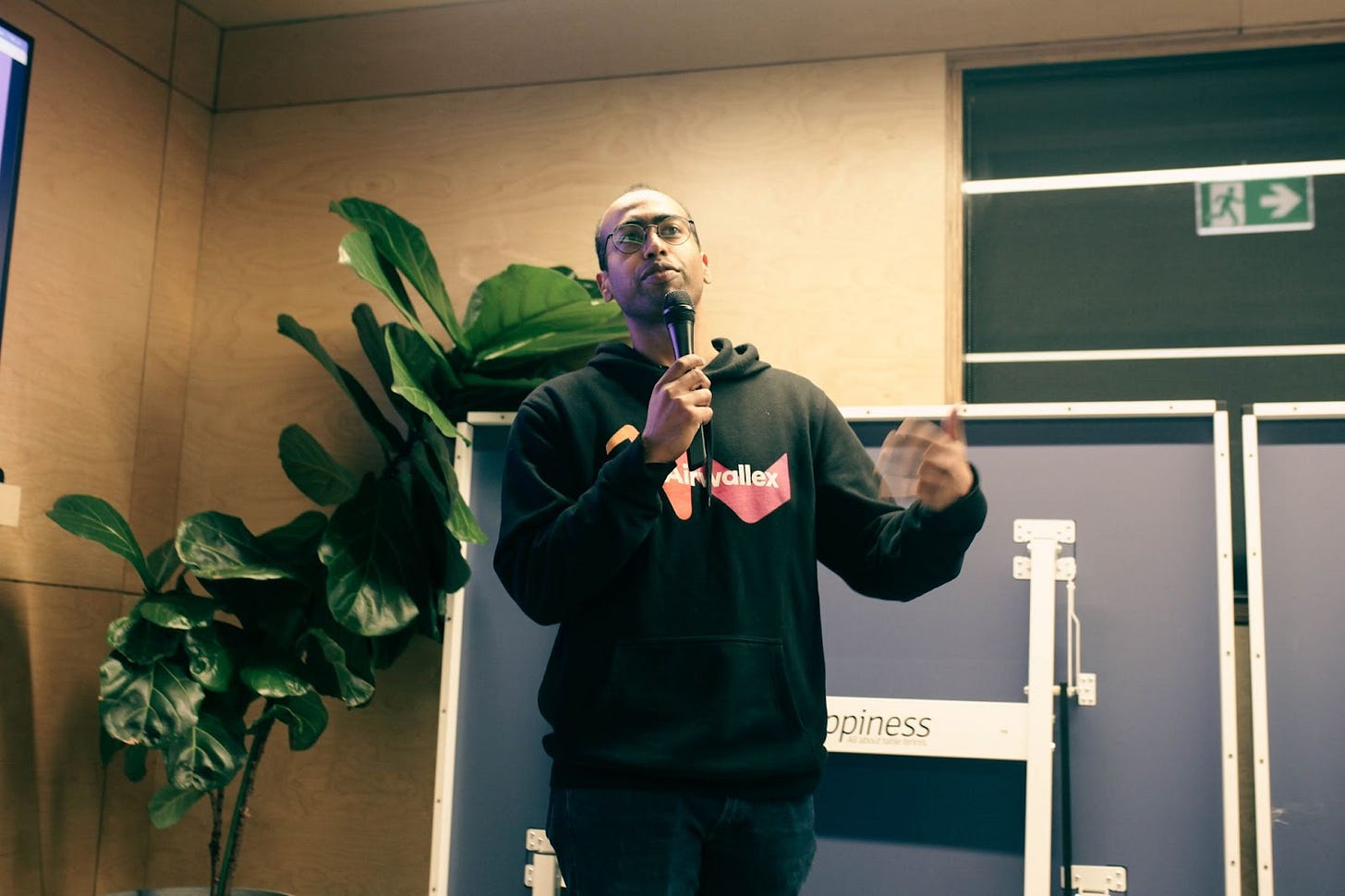Investment Notes: Everlab
Why AfterWork Ventures invested in Everlab - a preventative health protocol providing access to a premium preventative health service
Annually, the Australian Government spends over $100 billion on healthcare. This represents over 15% of the Government’s total budget1. Yet a small fraction of expenditure is on preventative measures - proactively helping people increase their healthspans and address issues early on, before they rear up as symptoms that require a health intervention.
As populations age, a paradigm shift is sorely needed. We can continue to invest billions into hospitals, operating theatres, and chemotherapy wards - but the biggest enemy of chronic disease is early detection and proactive management.
Enter Everlab - an innovative preventative health protocol that provides customers access to cutting-edge and comprehensive diagnostics, a personal doctor, and tailored programs - designed to improve wellbeing and longevity.
Founded by Dr Steven Lu, Marc Hermann, Sam Kothari, and Anshul Jain, Everlab aspires to build the personalised operating system for personalised health and longevity.
We were delighted to be amongst Everlab’s first believers, and to invest in their $3 million pre-seed round alongside European fund b2venture, and Australian funds Ten13 and Flying Fox Ventures.
What we loved about the opportunity
Healthspan is as important as lifespan
Over the last century, we’ve made huge strides in increasing our lifespan - curing diseases, pioneering new surgeries, inventing vaccines, and improving access to care. Over the last 60 years, average lifespan globally has increased by 35%.
But as we’re now living longer, it’s become even more important to extend our healthspan - the number of years we have with a high level of functioning. We discuss this thematic in our recent exploration into the Future of Longevity. The stakes are high - a longer healthspan means having the energy to play with your grandchildren, travel in retirement, and live independently for longer. But half of the average human lifespan is now spent in degrees of poor health - almost 50% of Australians live with a chronic illness, and 30% have multiple chronic conditions2.
Many gains in healthspan can be unlocked through preventative treatments and habitual behaviours - especially if they begin years before symptoms might start to appear. 80% of heart diseases and 40% of cancers can be prevented or delayed with early detection, intervention, and behavioural changes.

We’re hopeful that Everlab will usher in a new paradigm: medically guided preventative care that enables customers to actively extend their healthspan, reducing the burden of chronic illness on not only themselves, but also payers such as governments and insurers.
Personalised and preventative health is coming into focus
Cult phenomenons such as Peter Attia’s Outlive and Andrew Huberman’s Huberman Lab Podcast have brought innovative and scientific health interventions out of niche subreddits such as r/biohacking r/longevity and into the mainstream consciousness.

Consumers are getting wiser and more motivated to take preventative action. We’re seeing more consumers educate themselves about their own health - using wearables such as Oura rings, Whoops, and Smart Watches to measure their sleep, steps, and heart rate variability (HRV); wearing continuous glucose monitors (CGMs) to better understand their insulin response to different foods; and experimenting with ice baths, infra-red saunas, and specialised diets such as Bryan Johnston’s Blueprint project.
While some of these ideas will always remain niche (we think there’s a capped market size of people willing to sit in an ice bath), being able to access a higher standard of concierge healthcare that provides diagnostics, continuous monitoring, timely access to specialists, and a long-term health coaching program is an idea that could gain mass appeal.
Several technological innovations make this standard of care - once only accessible for the extremely wealthy - now within reach for many more customers. Diagnostic tests have fallen dramatically in price, AI and automations can provide doctors with leverage and make them more efficient and effective, and apps can help deliver personalised prevention plans in a delightful digital product experience - one that combines medical insights with data from wearables.
The challenges we saw
Is it possible for technology to scale quality healthcare?
Globally, hundreds of billions have been invested in digital healthcare companies - like Forward, Ezra, Babylon, and many more. Yet a generational healthcare company has yet to emerge - the way Google, Amazon, Meta, and Netflix have emerged for their respective categories.
It begs the question - can healthcare companies scale with technology? Is the business model one that makes sense for venture capital?
Generally speaking, a few common elements make companies a good fit for venture capital investment: variable costs are low (e.g. there is very little incremental cost associated with selling an additional copy of software), gross margins are high, and revenue is recurring. This creates an opportunity for companies to reinvest their gross margin into quickly scaling their go-to-market and acquiring more customers. As the flywheel spins faster, the company builds defensibility - through network effects, economies of scale, or brand.
Compared to a B2B SaaS company, a consumer healthcare company does not fit this ‘mould’ as straightforwardly. Compared to pure software, Everlab’s product has more variable costs - the cost of diagnostic tests, healthcare professionals’ time, and physical clinics.
Our thesis is that although the cost to serve customers will be higher, Everlab will earn the right to capture some of the immense value it delivers through the protocol. The protocol extends beyond their concierge service and suite of diagnostic tests, but includes a data-driven personalised health plan, and will be delivered via a digital health app that is continuously tracking biomarkers and suggesting treatment strategies to optimise wellbeing and mitigate long-term risk of chronic disease.
In being first to market with this kind of service in Australia, Everlab has an opportunity to create sticky customers - by becoming the default source of truth for their patients’ health information, and partnering with them on their health journey over decades. This strong foundation of recurring revenue will enable Everlab to invest further in improving quality of care and building economies of scale - so it can deliver diagnostics and medical consults more cheaply and efficiently, expanding gross margins while delivering immense value.
Questions we had for the team
Can Everlab resonate beyond existing converts and resonate with a mass audience?
Once the pursuit of longevity was thought to be the domain of eccentric billionaires - who could afford personal trainers and chefs, saunas and ice baths, and cutting edge technologies.
They’ve been followed by a cohort of wellness and tech enthusiasts - the sort who can be spotted wearing continuous glucose monitors, who do intermittent fasting every week, and who love to talk about their sleep data. Generally, this cohort has high disposable incomes, free time on their hands, and already cares about their health and wellbeing.
To build a truly generational healthcare business, Everlab has to grow its addressable market beyond the already converted, and convince a mass audience to adopt their approach. Everlab has several strategies to do this over time: with content that educates the mass market, by making a premium experience more affordable through creating economies of scale, and by positioning itself as a thought leader in the preventative healthcare movement.
In the long term, partnerships with payers such as governments and insurers may play a role. The burden of chronic diseases is already weighing on governments and insurers - the World Health Organisation estimates that the global cost of chronic diseases will total more US $47 trillion over the next two decades. Payers will be more incentivised than ever to ‘bend the curve’ of chronic disease in their ageing populations. In the long term, we would love to see governments partnering with companies like Everlab to encourage more people to take early, proactive steps - before they develop chronic diseases.
In the shorter term, we are already seeing forward-thinking insurers encourage their customers to seek preventative care, and provide subsidies and incentives for these products.
How we built conviction
Our investment in Everlab was a real vindication of our community-powered model. Sam has been a valued member of the AfterWork community since he was Head of Growth at Airwallex, and Marc joined the community soon after he moved to Sydney from Berlin.
We knew Sam and Marc were experienced entrepreneurs and operators, with a hunger in their belly to build something significant. Dr Stephen Lu as Chief Medical Officer adds a deep well of primary health experience and expertise, while Anshul Jain brings product and technical experience from Freelancer, Amazon, and several startups he has co-founded.
We built conviction on the investment over many months - partnering with them to iterate on several aspects of the business. In fact, Adrian was Everlab’s first customer in Sydney - helping to test out different service providers and improve the product. Although the product was still a prototype, the experience helped us to understand the value of diagnostic insights, continuous consultations with an excellent doctor - packaged in a welcoming customer experience that is improving at pace.
Everlab’s product and mission is already resonating. With over hundreds of members just weeks after launch, we’re excited to be partnering with Everlab as they transform thousands of lives through preventive and personalised healthcare.
DISCLAIMER






